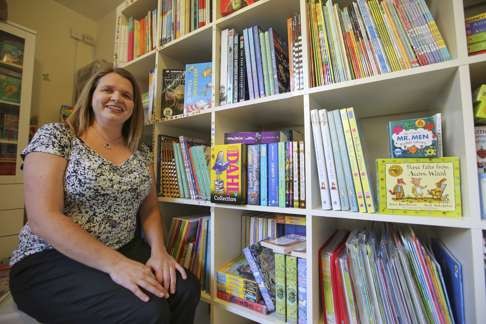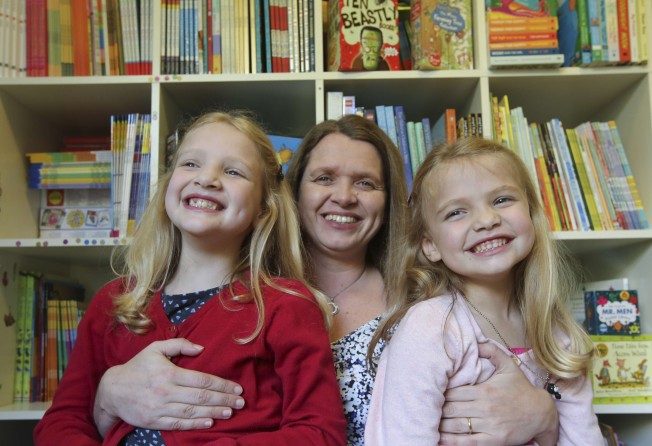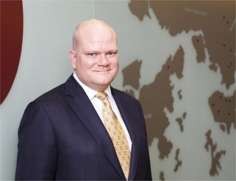
How putting career on hold for partner’s Hong Kong job can make you ill
If you live your life through someone else’s you lose your identity and risk deep unhappiness, says wellness coach. Fortunately, many ‘trailing spouses’ find new careers in entrepreneurial Hong Kong

Sara Young was training to be a lawyer in Britain when her boyfriend (now husband) accepted an expatriate assignment to Hong Kong in 2003. Young stayed back to complete her training; then, safe in the knowledge that her employer would keep her job open for her, she embarked on what she envisaged would be an exciting adventure.
At first, Young embraced life in a foreign city but, without friends to share her experiences with and her boyfriend working long hours, the honeymoon phase soon passed. Assuming they would return home on completion of the two-year assignment, Young found work at a British law firm to further develop her skills. But her dreams were dashed when her boyfriend’s contract was renewed, and she then followed him on expat assignments to Singapore and Australia.
“In Singapore, it was difficult to find work. I was bored and I was resentful that my boyfriend was pursuing his career and I wasn’t. I had trained for five years to become a solicitor and now, nothing. As we had no certainty as to how long we would live in a country, I did not retrain.”

It was difficult to find work. I was bored and I was resentful that my boyfriend was pursuing his career and I wasn’t
Young’s first daughter was born in Australia and her second was born in Hong Kong, one year after they returned in 2009. While raising children without the support of parents nearby was challenging, especially with her husband travelling frequently, it was her loss of identity that struck the greatest blow.
“I didn’t see myself as a ‘trailing spouse’ when I moved here. I was in my mid-20s, ready for an adventure. I loved being a wife and mum but I wasn’t cut out to do this full-time. I needed something more: something for me. But as my husband travels, I feel that it is important for at least one parent to be around. Sometimes I feel ‘why is it always me’ who stays at home?”

Young is not alone, if a four-year study of 264 trailing spouses in 54 host locations is anything to go. In “Being dumped in to sink or swim – an empirical study of organisational support for the trailing spouse”, published in 2012, researcher Yvonne McNulty cited trailing spouse identity issues as the major finding of the research overall.
The greatest pitfall for accompanying spouses is that they can become their partner’s shadow, explains Cristina Rodenbeck, founder of Manipura Wellness Practice and executive coach at Ignition Coaching.
“If you live your life through someone else’s life you tend to lose your own identity – you can forget who you are and your personal needs. Many of my clients focus only on the needs of their partner and children. If we neglect our own needs, we create emptiness in our lives and we lose our essence. This creates space for deep unhappiness.”
It was here that I reinvented myself and found my true passion in life in the area of wellness and well-being
Rodenbeck speaks as both a wellness coach and an accompanying spouse. She recounts her emotional turmoil when she followed her husband’s job to Hong Kong in 1998. At home in Brazil, surrounded by an established support network and thriving in her advertising career, she was confident and independent. But in Hong Kong, unable to pursue her personal and professional aspirations, Rodenbeck experienced emotions she’d never felt before – a lack of confidence and purpose, depression and loneliness.
Acknowledging her unhappiness, Rodenbeck’s husband left his high-paying job and the couple moved to Portugal. They found jobs in advertising and then, hoping to fulfil her husband’s dream to live in Asia, they transferred with work back to Hong Kong.
“When we returned, I saw the city with different eyes. I felt I could integrate and add value to this city. It was here that I reinvented myself and found my true passion in life in the area of wellness and well-being. Now, our family enjoys every single moment of this vibrant city. Hong Kong is our home.”
Hong Kong, with its low taxes and easy business set-up, is a breeding ground for budding entrepreneurs, says Rodenbeck. “This is a city where former executives, housewives or trailing spouses become successful chefs, coaches, consultants, bakers and meat suppliers. Hong Kong not only offers a plethora of courses in several fields and endless networking opportunities, it is also close enough to a number of countries and cities where you can learn new careers and interests.”
When Young’s daughters settled into school full time, she took the opportunity to redefine herself. In early 2015, Young turned her lifelong passion for reading into a gratifying profession: she bought an online children’s bookstore now known as Bookwise. As her business has flourished, so too has her self-esteem.
As a male ‘trailing spouse’, you’re an anomaly. ... There’s more to someone’s identity than a job title. I’ve lost my ‘social’ identity
“It feels great to know that I’m doing something to help to improve children’s literacy in Hong Kong. I have a renewed sense of purpose in life, which has made me happier within, and as a mum,” she says.
Young believes the expat community – her “adopted family” of friends – has been an invaluable support to her.
However, David Roth, who took a hiatus from his career as an interior designer for his wife’s international assignment to Hong Kong last year, says he has experienced the opposite.
“Women prefer to hang out with women; men are typically at work. As a male ‘trailing spouse’, you’re an anomaly. I miss the banter with friends and colleagues back home. There’s more to someone’s identity than a job title. I’ve lost my ‘social’ identity. Settling our family in without support has been challenging,” says Roth, a father of one.

While developing a social circle can take time, Charles Caldwell, human resources director at the English Schools Foundation (ESF), believes it is the responsibility of an expatriate’s organisation to support spouses on international assignment.
Agreeing with McNulty’s research findings that corporate support for spouses is typically inadequate, despite family problems being the number one cause of failed assignments, Caldwell helped to devise and implement a programme for “talented spouses” – a title that is much more positive and affirming than “trailing spouses”, he says.
Each year, ESF employs an average of 110 new teaching staff, who are invited with their families to attend annual induction days. The days focus predominantly on living in Hong Kong and include a fun treasure hunt whereby families explore Hong Kong. ESF then follows up with the “talented spouse” workshop.
“Once school starts, we are very much aware that spouses might enter a vacuum and wonder what to do next. We ask participants in advance of the workshop what their goals are while their spouses are working in schools. This way we tailor the workshop to match their questions – whether they relate to finding a job, pursuing a lifelong hobby or knowing where to buy things, as examples. Talented spouses often find the networking at these sessions very helpful.”
Having lived in three different cities in two continents before moving to Hong Kong, Laura Paul, founder of Hong Kong’s largest Facebook community for natural health and wellness – has become an “expert” expat spouse. While discovering new communities and cultures has been exhilarating, Paul says she has been careful to preserve her personal identity along the way. She has done this by purposely adopting a “portable” identity.
“When we moved to Hong Kong, it was important to me that I dived right into what I had always been doing. I was active within the girls’ schools, I volunteered with the Hong Kong Ballet, and I continued my portable career as an artist. Here, I set up Healthy Living in HK and also Hong Kong Gifted Alliance. I feel that if we moved again, I now know how to get involved with the local community. I’ve always kept portability and flexibility in mind so I’ve been able to enjoy every experience we’ve had in every place we lived. I’m not a ‘trailing spouse’: I’m a travel partner and family adventure seeker.”